| I love shocking people in the exam chair. And a sure fire way to do it is to tell a lifelong nearsighted person they got better. They never believe me until I tell them why and how they got better. You see nearsighted people hate going to the eye doctor because it is almost a guarantee that they are going to get the bad news of “you got worse” or “we need to add some more power to your contacts”. I have good news for all you young nearsighted people. It eventually gets better. Women in their early thirties and men in their late thirties will virtually always get a little less nearsighted. The reason is because the lens inside your eye continues to grow from the time you are born til the time you die. It has new cells laid around it like an onion every year. And around mid 30′s the increased thickness of the lens leads to a farsighted shift in vision. So if you are nearsighted you become less nearsighted but if you are farsighted you become more farsighted. | "I can't believe |
|
0 Comments
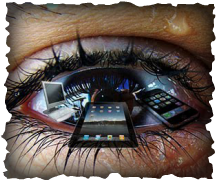 From computer monitors to iPads, tablets and phones, it is not unusual for many of us to spend most of the day reading digital screens. But staring at them for hours every day can cause significant eye strain, blurry vision, headaches, burning or watery eyes. Individual vision problems and poor office ergonomics contribute to the rise in eyesight trouble, and as computer use duration increases, so do the symptoms. Some tips to help ease computer related eye problems are:
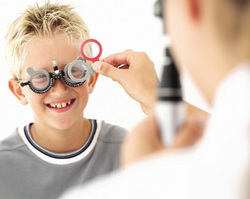 It is estimated that 80% of learning for children comes through their visual system. It is also estimated that 80% of children begin school without a comprehensive eye exam. Good vision has been identified as a major factor of a child’s ability to learn and succeed. Since kids need good near and distance vision at school, as well as good peripheral coordination, it just makes sense for parents to have them tested before they start school. Most children won’t complain about visual problems, because they don’t realize what “normal” vision is. The American Optometric Association (AOA) actually recommends your child have their first complete eye exam at six months, if there are no apparent eye problems. Check out the AOA’s helpful article “Steps in Infant Vision Development.” www.aoa.org/x9420.xml#1 Call our office at 850-769-1404 to set up an appointment for you and your child! 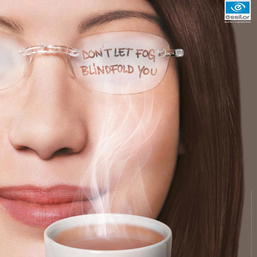 Yesterday's rain inspired this blog. Everyone was walking around Pier Park with fogged up eyeglasses. Why do glasses fog? Fog is a water vapor which is condensed into tiny droplets lying close to a surface, like lenses in glasses, which limits visibility. Most of the time, eyeglasses become foggy when you move from a cold to a hot environment. For us Floridians, this typically happens when we move from the cold AC inside to the warm and humid outside environment. At the end of 2011, Essilor came out with a new product, “Optifog”. How does it work? The lenses have a unique fog repellent property that is enhanced with a specific concentrate called the “Optifog Activator”. Each week, you apply this activator to the lenses. This will repel all the tiny water droplets off the lenses resulting in a pair of truly fog-free lenses. This will decrease distortion, blur, and contrast lost from the fog. If you’ve been frustrated by foggy lenses, we would recommend the addition of Optifog technology to your next pair of eyeglasses or sunglasses. Come by Academy of Eye Care and ask about it today!  Tired of fishing reading glasses out of your purse to read a menu or your phone? You’re not alone! If you’re too young to look old, you might consider one of the newer alternatives to the traditional lack of focus as we age. Dr. McQuivey, our optometrist, fits many happy patients with contact lenses that help correct your need to read. Monovision is one option, where one eye is fit for distance vision, while the other will correct your near sight. The brain adjusts to this new way of seeing the world, and many patients are very comfortable with this arrangement. There are also new multifocal contact lenses available, which use a different method for allowing clear sight far away and up close. Call us today at 850-769-1404 to set up an appointment for a comprehensive eye exam, where the health of the eye will be assessed as well as your need for correction. 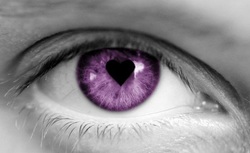 The mechanism of pupil constriction and dilation is regulated by the autonomic nervous system, which is also responsible for other uncontrollable reactions like goose bumps and heart rates. Inside the eye, the dilator and the sphincter muscles play the iris tissue like an accordion to the tune of light. Then again, the sun isn't the only thing orchestrating when the pupils open and shut. Humans' inborn fight or flight response, triggered by the parasympathetic nervous system -- a subset of the autonomic nervous system -- also manifests in our irises. When fear strikes, the pupils expand to heightened attention and focus. Pupils will also pop when we experience emotions on the sunnier end of the spectrum like love or happiness. It has been shown that men even translate that response into viewing larger pupils as more attractive or beautiful. Italian women in the Middle Ages recognized the beauty endowed by wide-open pupils, they would dilate their own eyes with belladonna. Unfortunately, the plant secreted not only the chemical atropine, which draws back the irises, but also a toxin that would deteriorate these women's eyesight and possibly poison them. Since atropine has long been identified as a toxin, optometrists use a synthetic derivative to dilate patients before examining their eyes. 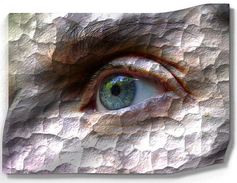 In Florida, we are accustomed to humidity in the air that so thick you can slice it with a knife. But when winter months approach, the atmosphere here gets very dry. Dry eyes that burn and ache are a common side effect of the cold winter winds outside and the dry, heated air of our homes inside. Our tears evaporate off the surface of our eyes, and our tear glands simply cannot produce fluid quick enough to maintain the protective, moist coating that our eyes require to stay hydrated. The result is dry eyes that may cause blurred vision or a scratchy, burning sensation. Luckily, there are several simple ways that you can combat dry eyes during the winter months. Here are our tips for keeping your vision clear and your eyes moisturized during the cold winter season ahead:
The winter season can be a great time to get outside and soak up the smells and sights of the season. However, make sure that you follow these simple steps for combating dry eyes to make sure that you do not fall victim to the hazards of the cold, dry winter weather. 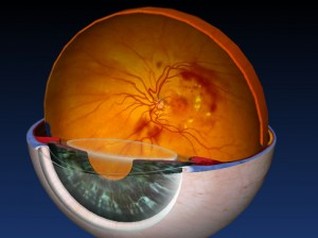 In November, we acknowledge American Diabetes Month and with it the serious toll the disease can take on your eyes. Prevent Blindness America attempts to raise awareness on the damage to the small blood vessels that nourish the retina when your blood sugar is not under control. The numbers for this disease speak for themselves:
What are the symptoms?
Often, there are no symptoms in the early stages of diabetic retinopathy. Vision may seem unchanged until the disease becomes severe. Eventually, the vision of a person with diabetic retinopathy may become blurred or blocked entirely. But even in more advanced cases the disease may progress without symptoms for a long time. That is why regular eye exams are so important for people with diabetes. See an Eye Doctor at Least Once a Year!!! Early treatment of serious diabetic retinopathy can improve the chance of saving your sight. For some people, diabetic retinopathy may be one of the first signs that they have diabetes. Adults and children who have diabetes should have a dilated eye exam at least once a year. At Academy of Eye Care, Dr. Byers always dilates your eyes as part of your eye examination. Eye drops are used to widen your pupils to allow a close look at the inside of the eye. We even have advanced technology of the Topcon 3D OCT to exam the layers of the retina and macular tissue in detail. [Source: Prevent Blindness America]  Starting around this time of year, we seem to get a lot of questions from people about their Flexible Spending Account (FSA) and Health Savings Account (HSA). In most cases, FSA / HSA must be used by the end of the calendar year, or you lose it. Here are a few answers to our most Frequently Asked Questions! 1. Can I use my FSA/HSA for prescription sunglasses? Yes! For lenses or frames! 2. Can I use my FSA/HSA to pay for my husband’s / wife’s / child’s / grandmother’s eye care? Yes! It can be used for anyone you claim on your taxes as a dependant. 3. Can I use my FSA/HSA for contacts? Yes! You may use it for contacts and any other expenses incurred in the maintainence of contacts, including cases, solution, rewetting drops, etc. 4. Do I need a receipt to send in to the administrators of my FSA/HSA? It varies widely by plan. Some plans see that the expense is from a doctor’s office, and so do not question it. Other plans want an extremely detailed receipt. We are happy to give you a detailed copy of your receipt with the insurance CPT codes on it if your FSA / HSA needs it. We can give this to you when we dispense your glasses or contacts to you, at the time of the exam, or can mail or fax the receipt to wherever you need it to go. If you smash your finger with a hammer – it’s not that big of a deal. If you get hit in the eye or get something in your eye, that can be a big deal. You have ten fingers and toes BUT only two eyes. And to date – we can put a new finger on your hand; we can’t put a new eye in your head. Some eye injuries can cause serious vision loss. It is important to understand when these injuries are considered emergent and how to appropriately respond to it. DO NOT attempt to treat a serious eye injury yourself!
CALL US RIGHT AWAY IF YOU HAVE:
There is a time to be tough and to suck it up, but that time should never come to your eyes! Come see us and don't play with your vision! |
Academy of Eye CareWe want to provide you with information about your eyes and keep you updated on what we are doing. Archives
September 2013
Categories
All
|
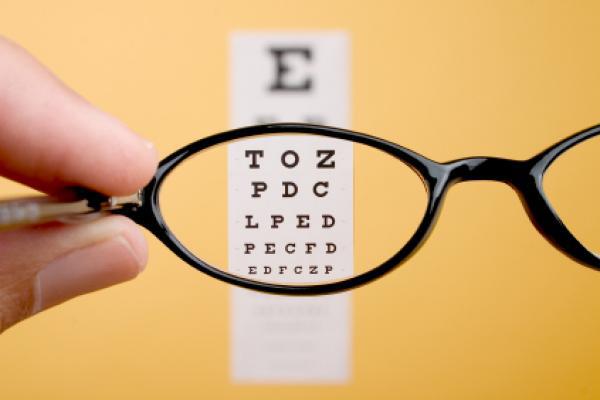
 RSS Feed
RSS Feed
